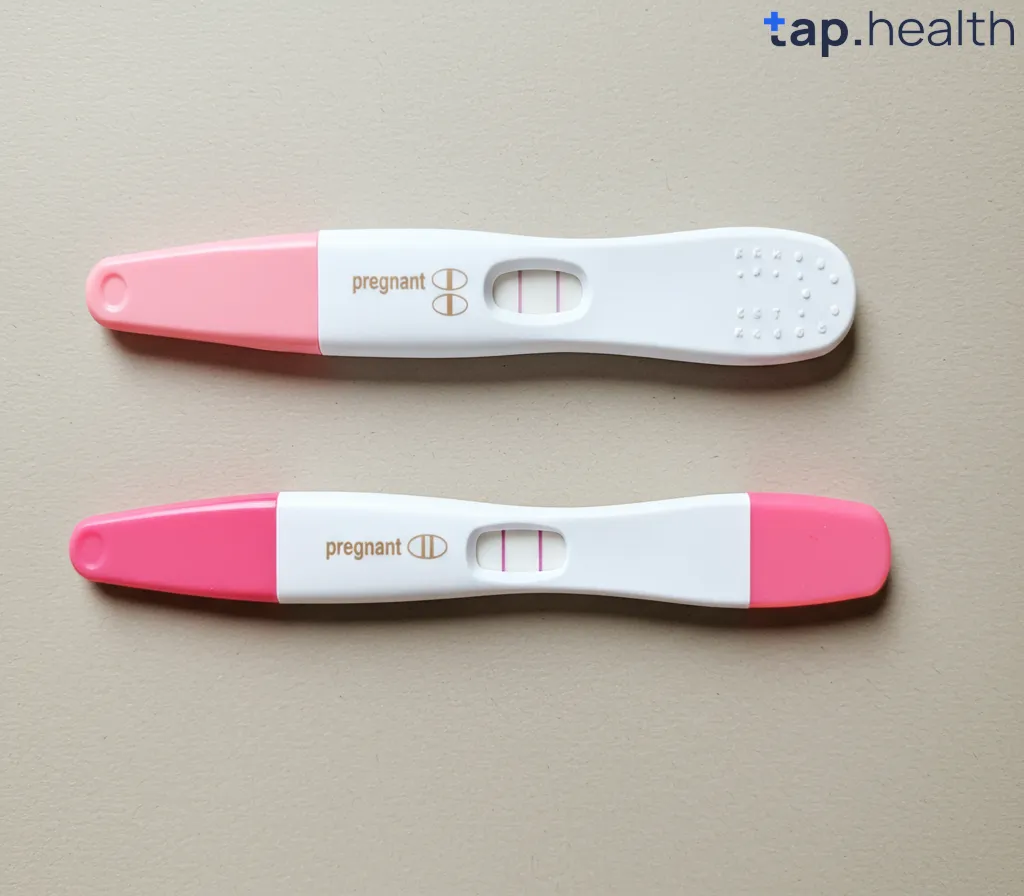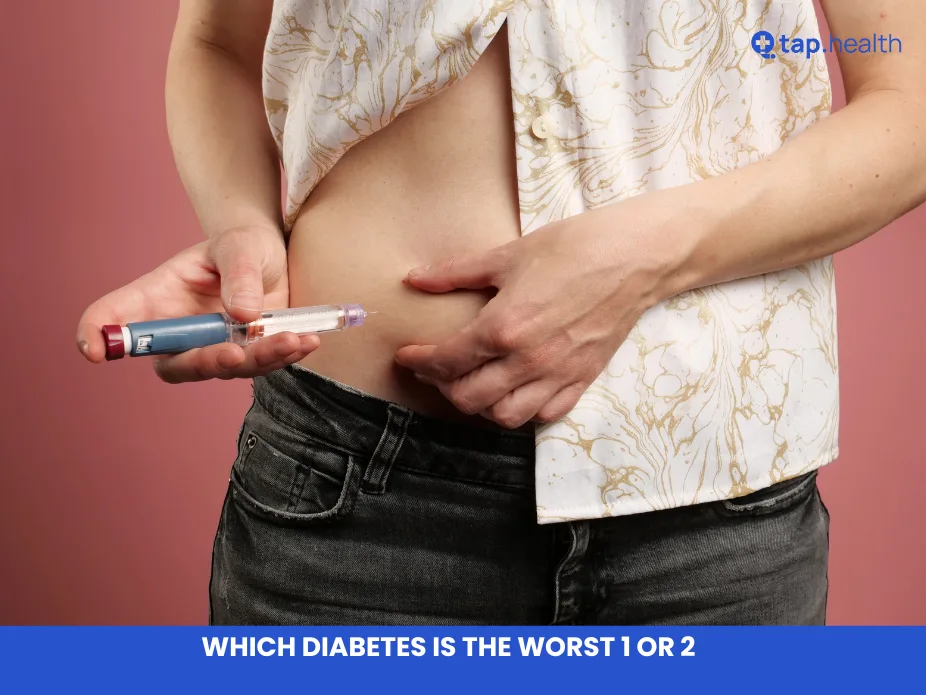Pregnancy tests are an essential tool for anyone trying to determine if they are expecting a baby. But when you get a negative result, a common question arises: Can you reuse a negative pregnancy test? It might seem tempting to try the test again, especially if you’re eager to know the outcome, but is it safe or accurate to reuse a pregnancy test?
In this article, we’ll explore whether it’s possible to reuse a negative pregnancy test, the science behind pregnancy tests, and why reusing one is not a good idea. We’ll also cover other important aspects of pregnancy testing, from when to test to what you should do if you get a negative result.
Let’s dive into the details and get to the bottom of this question.
What is a Pregnancy Test?
Before we get into whether you can reuse a negative pregnancy test, it’s important to understand how pregnancy tests work. A pregnancy test detects the presence of the hormone human chorionic gonadotropin (hCG) in your urine. This hormone is produced during pregnancy after the fertilized egg attaches to the lining of the uterus.
When you take a home pregnancy test, it works by chemically reacting with hCG, and if the hormone is present, it shows up as a positive result (usually a second line or a plus sign, depending on the brand of the test). If hCG is not detected, the result is negative (typically only one line appears).
Types of Pregnancy Tests
There are two primary types of pregnancy tests:
- Urine Tests: These are the most common tests used at home. They can be purchased over-the-counter and are easy to use. You either pee directly on a test stick or dip the stick into a urine sample collected in a clean container.
- Blood Tests: These are typically performed in a medical setting and can detect pregnancy earlier than urine tests.
For this article, we will focus on urine pregnancy tests, as they are the ones most people use at home.
Can You Reuse a Negative Pregnancy Test?
Now, the main question: Can you reuse a negative pregnancy test?
The short answer is no, you cannot reuse a pregnancy test. Here’s why:
1. Chemical Reaction Already Occurred
Pregnancy tests work by chemically reacting with the hCG hormone in your urine. Once you pee on the test, the chemical reaction occurs, and the result is displayed. After the test has been used, the chemicals inside the test are already activated, and they cannot be reset or reused for another test.
Even if you try to pee on the test again, the reaction won’t work the same way because the test has already gone through the chemical process.
2. Inaccurate Results
Even if you manage to get another urine sample, reusing a test will likely result in inaccurate results. Once the test has been used, the indicators for positive or negative results have already changed. Trying to use the same test again may give you a false negative or even a false positive.
3. Test Components Are Not Designed for Multiple Uses
Pregnancy tests are designed for single-use only. Once you use a test, the chemicals inside the test are depleted. The test may not function as it was intended the second time because the components are no longer active.
4. Risk of Contamination
When you reuse a pregnancy test, there’s a risk of contamination. Any bacteria or substances that were present in your urine can affect the test, leading to a faulty result. This is especially true if the test comes into contact with dirty surfaces or if you have not handled it properly.
What Should You Do if You Get a Negative Pregnancy Test?
It can be disheartening to see a negative result on a pregnancy test, especially if you’ve been hoping for a positive outcome. However, a negative result does not always mean you’re not pregnant. Several factors can contribute to a negative test result, and it’s important to understand when to test and what to do next.
1. Test After Your Missed Period
If you take a pregnancy test too early, it may not detect enough hCG to give an accurate result. For the most reliable result, you should wait until after you miss your period before testing. Testing too early can lead to false negatives, as the hCG levels may not be high enough yet to trigger a positive result on the test.
2. Check the Expiry Date
Pregnancy tests have an expiry date printed on the box. Using a test past its expiration date can affect the accuracy of the results. Always ensure that the test is within its valid use period for the most accurate results.
3. Follow the Instructions Carefully
Each pregnancy test comes with instructions, and it’s essential to follow them precisely. If you don’t follow the timing correctly or if you don’t use the test as directed, you might not get a reliable result. Read the instructions thoroughly before using the test.
4. Consider Other Factors
There are other factors that might affect the outcome of a pregnancy test, such as:
- Diluted Urine: If you drink too much water or other liquids before taking the test, your urine may be too diluted to detect hCG.
- Hormonal Imbalance: Certain medications or hormonal imbalances can affect pregnancy test results.
- Ectopic Pregnancy: In rare cases, an ectopic pregnancy can cause low hCG levels, which might not be detected by a home pregnancy test.
5. Wait and Test Again
If you receive a negative result but still believe you may be pregnant, wait a few days and test again. hCG levels double approximately every 48-72 hours in early pregnancy, so a second test a few days later may give a more accurate result.
If you continue to get negative results but still miss your period, consider consulting a healthcare professional to explore other reasons for your symptoms.
What Happens If You Reuse a Pregnancy Test?
If you attempt to reuse a pregnancy test, you risk getting false or unreliable results. The test’s reaction has already taken place, and using it again won’t produce an accurate result.
Here’s what can happen if you reuse a test:
- Faint Lines or False Positives: Sometimes, you might see a faint line, which could be due to evaporation lines or the remnants of a previous test. This is not a true positive and can confuse you.
- No Results: The test might not show any results at all after reuse, leaving you unsure about the outcome.
Why Is Reusing a Pregnancy Test a Bad Idea?
Reusing a pregnancy test is a bad idea for several reasons:
- The Test is Invalid After Use: Pregnancy tests are meant to be used once. Reusing them leads to incorrect or unclear results, which could cause confusion or mislead you into making decisions based on faulty information.
- Risk of Infection or Contamination: Urine contains bacteria, which can potentially contaminate the test, especially if you don’t clean it properly before trying to reuse it.
- Testing Failure: Tests rely on a chemical reaction that can only occur once. Once this reaction happens, it’s not possible to “reset” the test and get accurate results a second time.
Can You Use a Pregnancy Test Multiple Times?
No, you should not reuse a pregnancy test, whether the result was negative or positive. Pregnancy tests are designed for single-use only. Attempting to use a test multiple times will only lead to inaccurate results and increase the likelihood of confusion or misinterpretation of the test.
How Can You Ensure Accurate Pregnancy Test Results?
To ensure you get accurate results from a pregnancy test, follow these tips:
1. Use a High-Quality Test
Not all pregnancy tests are created equal. Some are more sensitive than others and can detect pregnancy earlier. Choose a test from a reputable brand and check for reviews or recommendations.
2. Wait for the Right Time to Test
The best time to take a pregnancy test is after your missed period. Testing too early can lead to a false negative because your hCG levels may not be high enough yet to be detected.
3. Use First Morning Urine
First morning urine has the highest concentration of hCG, so it’s ideal for pregnancy testing. Avoid drinking too much water or other liquids before the test to ensure the urine is concentrated.
4. Follow the Instructions Carefully
Every test has different instructions. Make sure you follow the timing, the method of using the test, and the process for reading the result accurately.
FAQ on Can You Reuse a Negative Pregnancy Test?
Can I reuse a negative pregnancy test?
No, you cannot reuse a negative pregnancy test. The chemicals inside the test are activated during the first use, and reusing it can lead to inaccurate results.
What happens if I try to use a pregnancy test more than once?
Reusing a pregnancy test can lead to false negatives, false positives, or no result at all. The test is designed for single-use, and attempting to reuse it will not give you reliable results.
How long should I wait before testing again after a negative result?
If you get a negative result but still believe you might be pregnant, wait a few days and test again. hCG levels rise every 48-72 hours in early pregnancy, so testing again after a few days may give a more accurate result.
Can I test too early and get a negative result?
Yes, testing too early can result in a false negative. It’s best to wait until after your missed period for the most accurate results.
How can I ensure my pregnancy test is accurate?
To ensure an accurate result, use a high-quality test, test after your missed period, use first morning urine, and follow the instructions carefully.
In conclusion, you cannot reuse a negative pregnancy test. Reusing a test leads to inaccurate results and can cause unnecessary confusion. If you get a negative result, wait a few days and test again if needed. Always follow the instructions and use a fresh test for the most reliable outcome.



